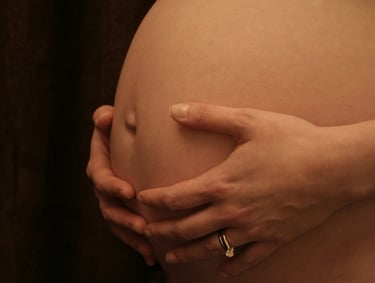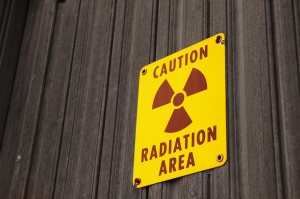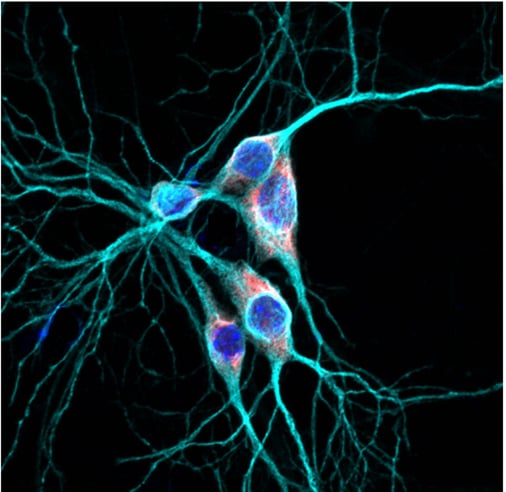A UCLA cancer research team has recently received a $7.6 million grant from the California Institute for Regenerative Medicine. This award will support research into genetically engineered white blood cells which can selectively target and kill tumor cells, while simultaneously activating other immune cells to do the same.
Read MoreTags: CA, University of California Los Angeles, Stem Cells, Los Angeles, genetic engineering, UCLA, Biotechnology Vendor Showcase, new funding, cancer research funding, tumor cells
Tags: University of California Los Angeles, Autism, UCLA, autism research

Over thirty-six million Americans suffer from migraines. According to the Migraine Research Foundation, more people in the U.S. suffer from migraines than diabetes and asthma combined. The disorder ranks in the top twenty of the world’s most disabling medical conditions. Yet, migraine research has traditionally been one of the lowest-funded fields of study in medicine… Until now.
Read MoreTags: University of California Los Angeles, migraine research, UCLA School of Public Health, UCLA, BioResearch Product Faire, Leonard Goldberg, Dr. Andrew Charles, UCLA research funding
 When vital organs in the body, such as the lungs, begin to fail, an organ transplant can be a solution to the problem. However, receiving a transplant may have its own complications, such as the body rejecting its new organ.
When vital organs in the body, such as the lungs, begin to fail, an organ transplant can be a solution to the problem. However, receiving a transplant may have its own complications, such as the body rejecting its new organ.
Now, thanks to a generous donation of $1 million dollars from Michael and Linda Keston, researchers from the Division of Pulmonary and Critical Care Medicine at the UCLA David Geffen School of Medicine will be able to continue studying lung disease and the organ rejection commonly following a transplant.
Read MoreTags: CA, University of California Los Angeles, Los Angeles, LAVS, UCLA, Biotechnology Vendor Showcase, new funding, 2016, Lung Disease, organ transplant, organ rejection
 During pregnancy, much of a fetus’ development is contingent on the condition and function of the placenta. It is responsible for the transmission of substances from mother to child that are critical to early development, including blood, oxygen and nutrients, without which the fetus could not exist. Sometimes, however, environmental effects can cause deficiencies in the placenta, which can lead to harmful side effects such as preterm birth or even death.
During pregnancy, much of a fetus’ development is contingent on the condition and function of the placenta. It is responsible for the transmission of substances from mother to child that are critical to early development, including blood, oxygen and nutrients, without which the fetus could not exist. Sometimes, however, environmental effects can cause deficiencies in the placenta, which can lead to harmful side effects such as preterm birth or even death.
Tags: CA, University of California Los Angeles, Medical Research, California, Los Angeles, Development, UCLA, Biotechnology Vendor Showcase, NIH funding, NIH award, Southwest Region, 2016, best science tradeshows, pollution, pregnancy
 Like any living organism, cancer cells rely on fuel in order to survive and grow. Unfortunately for many, the growth of cancer cells is extremely deleterious to human health. That is why a major facet of cancer research currently involves locating and preventing the mechanism for fueling cancer cells.
Like any living organism, cancer cells rely on fuel in order to survive and grow. Unfortunately for many, the growth of cancer cells is extremely deleterious to human health. That is why a major facet of cancer research currently involves locating and preventing the mechanism for fueling cancer cells.
Tags: CA, University of California Los Angeles, cancer research, California, Los Angeles, Cancer Treatment, 2015, LAVS, UCLA, Research Funding, Life Science, Biotechnology Vendor Showcase, Southwest Region, Prostate cancer
 While not necessarily always the best course of treatment, the majority of men with prostate cancer will go with radiation treatment when confronted with options for treating the potentially deadly disease. Unlike other options, including surgery and chemotherapy, radiation treatment is a relatively “outpatient” procedure - with no anesthetic needed, targeted effectiveness, and relatively few short term side effects.
While not necessarily always the best course of treatment, the majority of men with prostate cancer will go with radiation treatment when confronted with options for treating the potentially deadly disease. Unlike other options, including surgery and chemotherapy, radiation treatment is a relatively “outpatient” procedure - with no anesthetic needed, targeted effectiveness, and relatively few short term side effects.
Tags: CA, University of California Los Angeles, cancer research, California, LA, 2015, LAVS, UCLA, Biotechnology Vendor Showcase Event, Prostate cancer
Sometimes eradicating the tumor is only a partial defeat for cancer. Tumors release cancerous cells into the bloodstream that can form new tumors. A team at the University of California, Los Angeles has devised a clever strategy for detecting and collecting these errant cells so they can be stopped and studied to prevent further harm.
Read MoreTags: CA, University of California Los Angeles, 2015, UCLA
Biochemists at the University of California, Los Angeles recently developed the largest molecular "cage" ever created. This "cage", a cube-like structure, was constructed from 24 copies of a single protein that has the ability to self-assemble into a cage. This newly created cage could potentially lead to new ways of delivering vaccines to infected cells.
Read MoreTags: CA, University of California Los Angeles, Southwest, 2015, LAVS, UCLA, Biotechnology Vendor Showcase
To get under the skin of a tumor is a very difficult task. If the goal is to invade tumor cells, then classic drugs are simply too large to get through. A bioresearch team at the University of California, Los Angeles is collaborating with a startup company to develop particles small enough for the job.
Tags: CA, University of California Los Angeles, Los Angeles, LAVS


